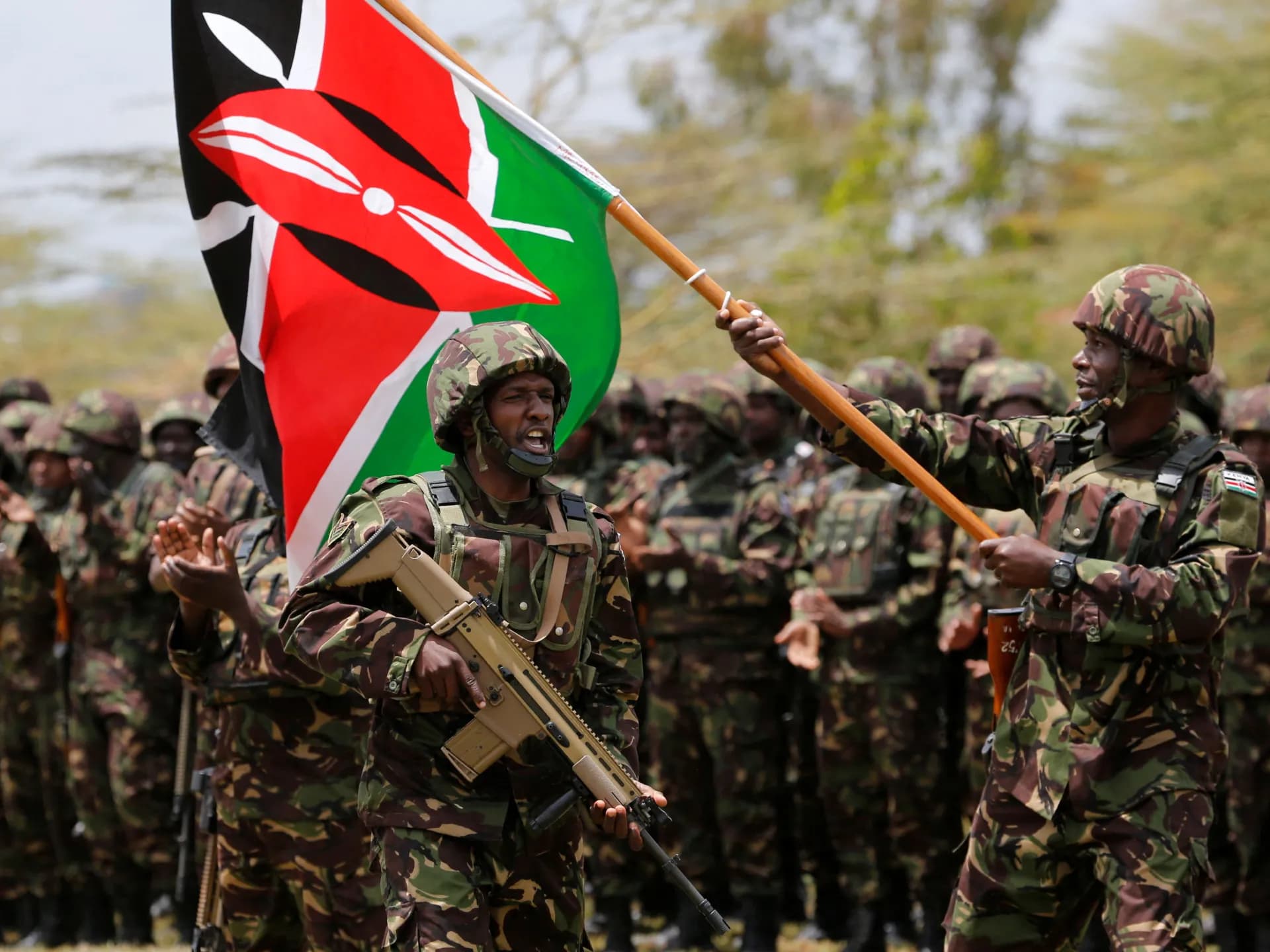We're loading the full news article for you. This includes the article content, images, author information, and related articles.
Kenyans seeking opportunities abroad are reportedly undergoing a rigorous 39-section questionnaire to join the Russian army, with some alleging deceptive recruitment tactics that lead them to the front lines of the Ukraine war.

Kenyans aspiring to join the Russian armed forces are subjected to an exhaustive 39-section questionnaire, a bureaucratic screening process approved by Presidential Decree No. 870 on October 10, 2024. This detailed application, typically for public and municipal service across the Russian Federation, serves as the gateway for foreigners entering the military ranks, excluding those enlisted under the Federal Security Service.
The document, initially appearing as a routine application, delves into an applicant's life history, requiring disclosure of surname, given name, patronymic, previous names, date and place of birth, passport or ID details, citizenship history, residence permits abroad, and even tax and medical insurance numbers. Educational background, professional training, and foreign language proficiency are also scrutinised. Crucially, applicants must reveal their military service history, draft liability status, and any clearance for access to state secrets.
The form further demands contact details for all valid passports held, explicit information about property and relatives abroad, political affiliations, employment history, awards, and any criminal or administrative records. Even optional fields, such as nationality, are routinely completed by African recruits, often with entries like 'Kenyan.'
While some Kenyans willingly join, drawn by promises of better pay and potential Russian citizenship, others report being deceived. Reports indicate that some individuals are lured with offers of lucrative civilian jobs or scholarships, only to find themselves coerced into military service or supporting the Russian war effort in Ukraine. The Kenyan Ministry of Foreign Affairs (MOFA) has acknowledged a syndicate recruiting Kenyans under false pretences.
One such case involves Evans Kibet, a Kenyan athlete who travelled to Russia as a tourist. He claims he was tricked into signing military documents he did not understand, had his passport and phone confiscated, and was then sent to a military camp. Kibet reportedly fled during his first combat mission and surrendered to Ukrainian forces.
Another former General Service Unit (GSU) officer, identified as Kevin, told the Nation that he was fully aware of joining the Russian army and is content with his monthly earnings of KSh 316,000, nearly triple his previous salary in Kenya's disciplined forces. He claims his duties involve transporting meals and recovering fallen soldiers, not direct combat.
Kenya's Ministry of Foreign Affairs has launched an inquiry into reports of its citizens being trafficked to Russia and forced to fight in Ukraine. Principal Secretary for Foreign Affairs, Dr. Korir Sing'oei, stated that Kenya is working through its embassy in Moscow to verify these claims and gather more information. He has also confirmed the rescue and repatriation of several Kenyans, including Kevin Kariuki Nduma, who was held as a prisoner of war in Ukraine.
Kenya is a signatory to the 1989 United Nations Convention on International Convention against the Recruitment, Use, Financing and Training of Mercenaries, and the 1977 OAU Convention for the Elimination of Mercenaries in Africa. Dr. Sing'oei has reiterated Kenya's rejection of allegations of its citizens serving as mercenaries, asserting that such activities would contravene these international conventions.
While it is not illegal for a willing participant to join the Russian army, provided it is voluntary, the Kenyan government urges citizens to exercise diligence in verifying foreign employment contracts and to seek advice from the Ministry of Foreign Affairs.
The cases of Kenyans joining foreign armies highlight significant risks, particularly in conflict zones. Individuals seeking better economic opportunities may become vulnerable to deceptive recruitment practices, leading to their involvement in dangerous situations without adequate protection or support. The lack of clear information and accountability in such cases causes immense distress for families and raises questions about the government's capacity to protect its citizens abroad.
The disappearance of former Kenya Defence Forces (KDF) soldier Oscar Agola Ojiambo in Russia since May 2025, after allegedly being recruited for a military job, further underscores these concerns. His family has had no contact with him for over five months.
The exact number of Kenyans currently fighting in the Russia-Ukraine war remains unclear, as do the full mechanisms of their recruitment and repatriation. While the Russian authorities deny government involvement in deceptive recruitment schemes, the Kenyan government's efforts to track and assist its citizens are under scrutiny.
The ongoing investigations into recruitment agencies facilitating travel to Russia for military-related work will be crucial. The government's response to families of missing Kenyans and its diplomatic engagement with Russia regarding the welfare of Kenyan nationals will also be closely watched. Furthermore, the broader issue of human trafficking and deceptive recruitment tactics targeting vulnerable Kenyans seeking opportunities abroad remains a critical area of focus.
Keep the conversation in one place—threads here stay linked to the story and in the forums.
Sign in to start a discussion
Start a conversation about this story and keep it linked here.
Other hot threads
E-sports and Gaming Community in Kenya
Active 9 months ago
The Role of Technology in Modern Agriculture (AgriTech)
Active 9 months ago
Popular Recreational Activities Across Counties
Active 9 months ago
Investing in Youth Sports Development Programs
Active 9 months ago